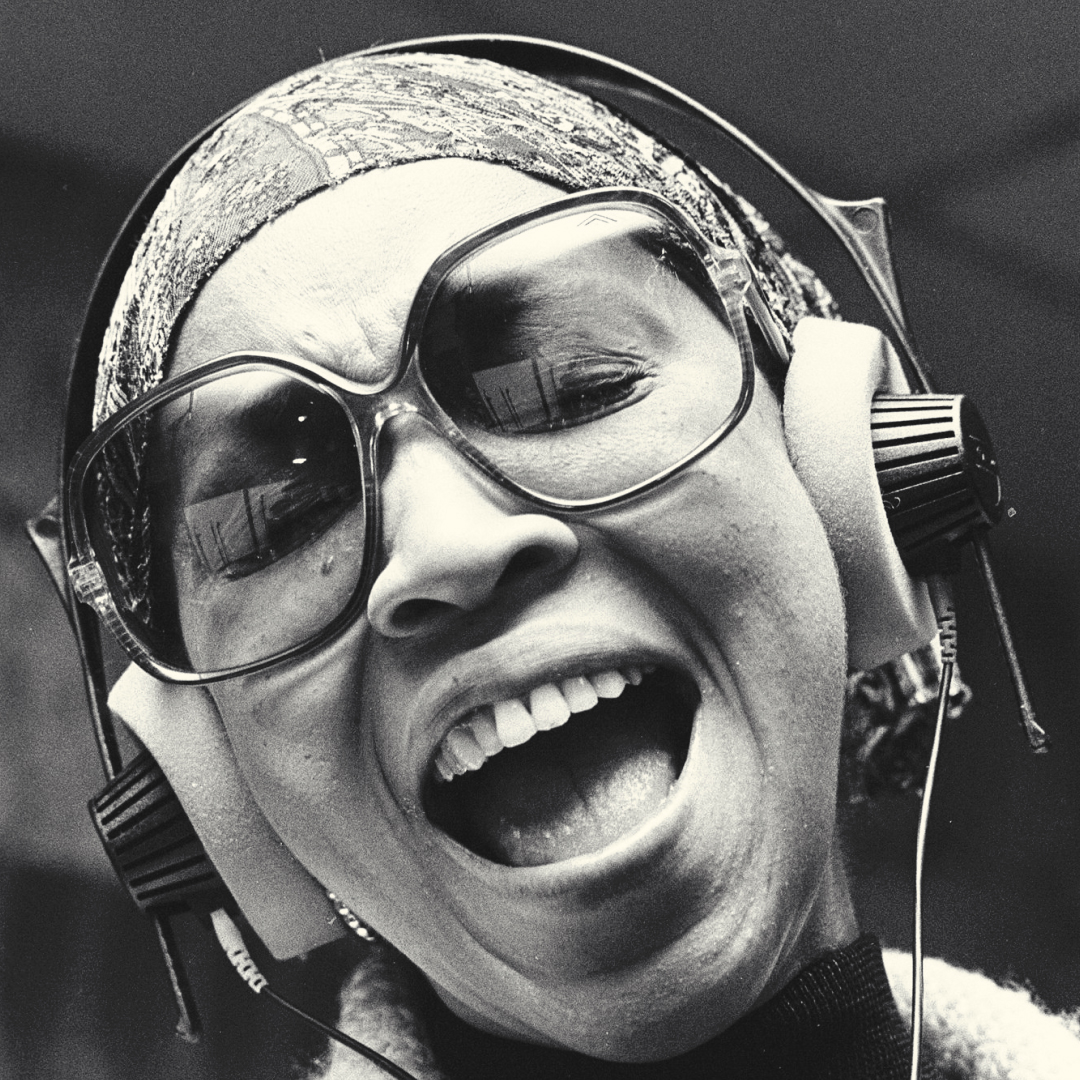‘Without music, life would be a blank to me’, said Jane Austen.
And we could not agree more.
Music can soothe us, energise us, transport us and, above all, inspire us. That is why we are curating this Sheroic Playlist. A list that not only brings you songs, but also introduces you to some extremely inspiring female musicians and herstories. Women whose music or lives are sheroic and need to be celebrated.
As a warm up for our next social exhibition, Black Sheroes Month, we are compiling a playlist filled with the most inspiring black singers.
You can listen to the full list on Spotify and here you have some of their sheroic life stories.
Enjoy!
 |
Grace Jones 1948 – .Grace Beverly Jones is one of the most unforgettable artists to emerge form the New York City’s Studio 54 disco scene of the late 70s. She was born in Jamaica and moved to the US at age 13. She started her career as a model in Paris and New York, before embarking on a music career in 1977, securing a record deal with Island Records. She moved toward a new wave style that drew on reggae, funk, post-punk and pop music in the early 80s. Her most popular albums include Warm Leatherette (1980), Nightclubbing (1981), and Slave to the Rhythm (1985). Jones took a 20 year break from music to focus on film work, and made a full return to music in the late 2000s when she released Hurricane.
|
 |
Mariam Doumbia (Amadou et Mariam) 1958 – .Mariam Doumbia met Amadou Bagayoko at the Bamako Institute for the Young Blind. They married in 1980 and moved from Bamako to Abidjan in 1986, where they recorded their first cassettes. The pair were both songwriters and became famous for their thoughtful and provocative lyrics. Since the late 1990s Amadou & Mariam have produced “Afro-blues” music that mixes traditional Mali sound with rock guitars, and other international sounds. In 2016, Mariam joined Les Amazones d’Afrique – an all-female collective of West African musicians campaigning for women rights and struggle against violence. “We dare believe that music can contribute to the trigger of behaviour change.”
|
 |
Odetta 1930 – 2008Born in Birmingham, Alabama, Odetta showed a keen interest in music since childhood. It’s one of her grammar school teachers who heard her voice and pushed her to receive a classical training. After working as a housekeeper, Odetta travelled to New York City and released her first album in 1954, followed by a very productive decade in the 60s with no less than 16 albums released. During that decade, she lent her powerful voice to the cause of black equality. She performed at political rallies, demonstrations and benefits. In 1963, during the March on Washington, Odetta gave the most iconic performance of her life after an introduction by Dr. Martin Luther King, Jr. Odetta is considered one of the strongest voices in the folk revival and has been called “the soundtrack of the Civil Right Movement”.
|
 |
Mavis Staples 1939 – .Mavis Staples is best known for her extensive gospel career with her family band, the Staple Singers. They toured the US in the 50s and gradually developed a strong following. It’s in 1963 that they delivered a concert in Alabama where they met Martin Luther King Jr. The meeting with the civil rights leader had a profound impact on the group, which wrote songs exclusively for the movement for the next several years. From the traditional gospel music of the 1950s to the 1960s protest songs that underscored some of the decade’s most dramatic social changes, and the self-empowerment anthems of the 1970s, Staples and her family have consistently created some of the best and most inspirational music of the past half-century.
|
 |
Angélique Kidjo 1960 – .Angélique Kidjo is a Grammy Award-winning Beninese singer-songwriter, actress and activist for women’s rigths. Time magazine has called her “Africa’s premier diva”. She has successfully mixed the West African traditions of her childhood in Benin with elements of American R&B, funk and jazz, as well as influences from Europe and Latin America. She has been a UNICEF Goodwill Ambassador since 2002 and has travelled to many countries in Africa. She founded The Batonga Foundation, which gives girls a secondary school and higher education so that they can take the lead in changing Africa. Kidjo has also been campaigning for Africa for women’s rights since 2009. This only constitutes a small part of Kidjo’s advocacy work, with a strong focus on women’s education.
|
 |
Oumou Sangaré 1958 – .
|
‘When I go, I am gonna know that I left something for my people to build on, that is my reward. You got your money, your house, and your easy living, my folks got nothing and they need inspiration 24 hours a day and that is why I am here for’ (Nina Simone)
